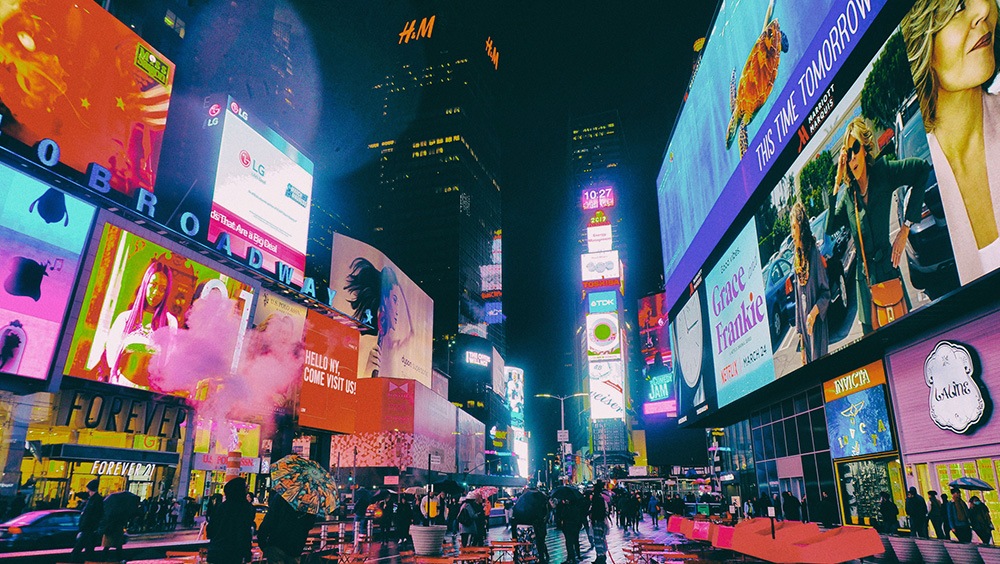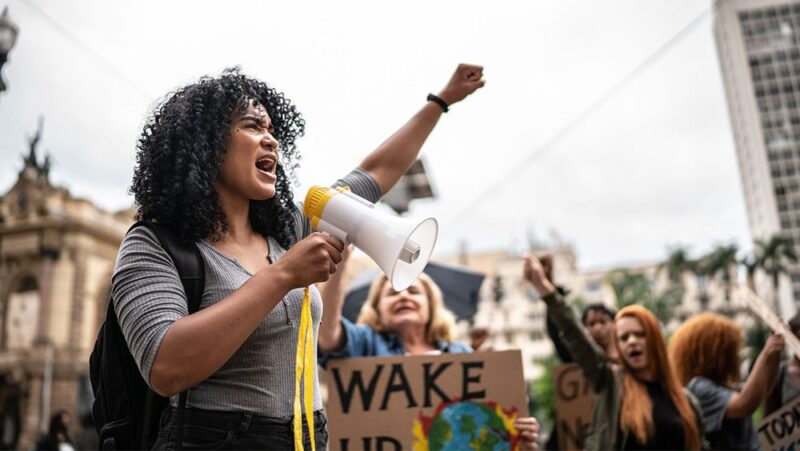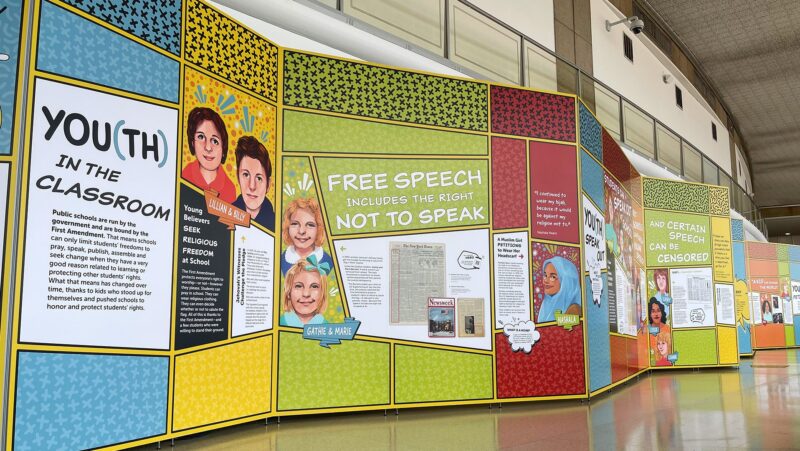Commercial Speech and Truth in Advertising: Everything to Know

The First Amendment protects freedom of speech. But it does not protect all speech equally. Case in point: Commercial speech.
Commercial speech originally was not covered by the First Amendment at all. Since the 1940s, it has gained a little more protection, but not complete protection. Here's everything you need to know.
What is commercial speech?
Commercial speech is used to sell a product or service, like advertising. It can also be leaflets handed out on the street, posted signs or pop-up ads you see on the internet.
Sometimes ads also include other information, and this is where things get tricky.
Courts need to decide whether a particular message gets full First Amendment protection (like political speech does) or the lesser protection of commercial speech.
Courts have to consider whether the message is mostly selling something, or mostly information, news or political comments.
Why does commercial speech get less First Amendment protection than other types of speech?
Commercial speech gets slightly less First Amendment protection because the First Amendment is mainly meant to protect political speech and broader conversations about society. By contrast, commercial speech tends to involve more one-on-one transactions.
And many commercial speech regulations are designed to prevent false claims or fraud or the sale of illegal goods and services. Limits on commercial speech are designed to ensure truth in advertising, an easily understood goal that most people agree is important in their daily lives.
RELATED: Banned commercials: 10+ ads that were pulled or rejected (and why)
How has commercial speech been treated historically?
Commercial speech has gone on quite a journey since it was recognized as a separate category of expression by the Supreme Court.
That happened in Valentine v. Chrestensen (1942). A New York City business owner handing out leaflets offering tours of a submarine was cited for violating anti-littering laws. His response: Add a political protest message on the back. The Supreme Court was not impressed and, without further explanation, said that the First Amendment does not protect commercial advertising.
The waters were muddied when the court decided New York Times Co. v. Sullivan in 1964. While best known as a free press case, the heart of the case was a paid political ad, which the court ruled was protected by the First Amendment.
Fast forward another decade to 1975. The managing editor of a Virginia newspaper was convicted of violating a state law prohibiting anyone from encouraging others to get an abortion, which was illegal in Virginia. He published an ad that referred women to abortion services in New York, where abortion was legal. In Bigelow v. Virginia, the Supreme Court ruled that commercial speech could have some First Amendment protection.
A year later, in Virginia State Board of Pharmacy v. Virginia Citizens Consumer Council Inc., the court struck down a state law that made it illegal for pharmacies to advertise the price of prescription drugs and other medications. The court said businesses have a right to speak, and consumers have a right to receive pricing information.
In 1983, the court said in Bolger v. Youngs Drug Products Corp. that a contraceptive ad that discussed sexually transmitted diseases and family planning deserved First Amendment protection – but to a lesser degree, because the ad was primarily designed to sell a product.
What limits on commercial speech are acceptable under the First Amendment and why?
The history of Supreme Court commercial speech cases resolves two issues:
- Commercial speech is content that primarily exists for an economic purpose, even if it may have political or informational messaging as well.
- Commercial speech is somewhat protected by the First Amendment, but not as much as speech that is purely informational or political.
So, what level of protection does commercial speech receive?
In the 1980 case of Central Hudson Gas & Elec. v. Public Service Commission, the court created a four-part test to determine whether a restriction on commercial speech is OK:
- If the government can demonstrate that the speech is misleading or involves illegal activity, it is likely OK to restrict the speech.
- The government must prove a “substantial interest” in regulating the speech.
- The regulation must relate directly to the reason the speech needs to be limited. For instance, a ban on advertising alcohol next to the candy aisle in stores would meet this condition, if the government’s interest is preventing underage drinking.
- The regulation must not be more strict than necessary. For example, a ban on any alcohol advertising whatsoever in grocery stores would be too broad.
Some examples of commercial speech restrictions that have been upheld are:
- The Supreme Court upheld Puerto Rico’s ban on casino advertisements in 1986 to protect the health, safety and welfare of Puerto Ricans.
- The Supreme Court in 1979 upheld a Texas law that prohibited optometrists from practicing under a trade name, such as “Amazing Optical,” as opposed to the practitioner’s legal name, like “Dr. Smith Optical,” because trade names can be deceptive.
What are examples of limits on commercial speech that violated the First Amendment?
Courts have struck down many attempts to regulate commercial speech.
- Arizona tried to ban lawyers from advertising their pricing as a way to maintain professionalism among attorneys. The Supreme Court said in Bates v. State Bar of Arizona (1977) that there are other and better ways to achieve this goal, like punishing lawyers for actual misdeeds. The court did uphold a ban on ads that make claims about the quality of a lawyer’s services like calling oneself an “expert” because they are hard to verify and more likely to be misleading. Other cases have upheld protections for legal and medical advertising (including advertising by drug companies) as long as the information can be verified as truthful and legal.
- A federal law prohibiting alcohol content on beer labels was struck down in Rubin v. Coors Brewing Co. (1995). The Supreme Court acknowledged the federal government’s substantial interest in preventing breweries from increasing the alcohol content in their beer as a marketing tool because of the dangers that might occur from people drinking more alcohol. But it said state laws allowed advertising alcohol content, so this federal law would not directly advance that interest.
- A Rhode Island law restricting liquor advertisements to the stores themselves was struck down in 44 Liquormart Inc. v. Rhode Island (1996) because the public has a right to learn about alcohol, a legal product.
- A unanimous Supreme Court ruled in Greater New Orleans Broadcasting Association Inc. v. United States (1999) that a federal law banning radio and television advertisements for gambling could not be applied in states where gambling is legal.
- In 2011, the Supreme Court struck down a Vermont law prohibiting pharmacies from selling information about doctors’ prescribing practices to drug companies, which used the information to target marketing of particular prescription drugs to those doctors. In Sorrell v. IMS Health Inc., the court said the Vermont law was not the least severe way for the state to regulate the prescription drug industry.
What’s the bottom line on commercial speech and the First Amendment?
Commercial speech is no longer outside of the First Amendment, but it still gets somewhat less protection than other speech.
To limit it, the government must show that the commercial speech in question is fraudulent, misleading or about an illegal product. Or it must use the least restrictive way to achieve a very important goal. Simply speaking: Commercial speech restrictions promote truth in advertising.
Kevin Goldberg is the First Amendment specialist for the Freedom Forum. He can be reached at [email protected].
Free Speech on College Campuses: The Ultimate Guide
For our freedoms, age is just a number
Related Content
$30,000 Giving Challenge
Support the Freedom Forum’s First Amendment mission by Dec 31st and double your impact.

